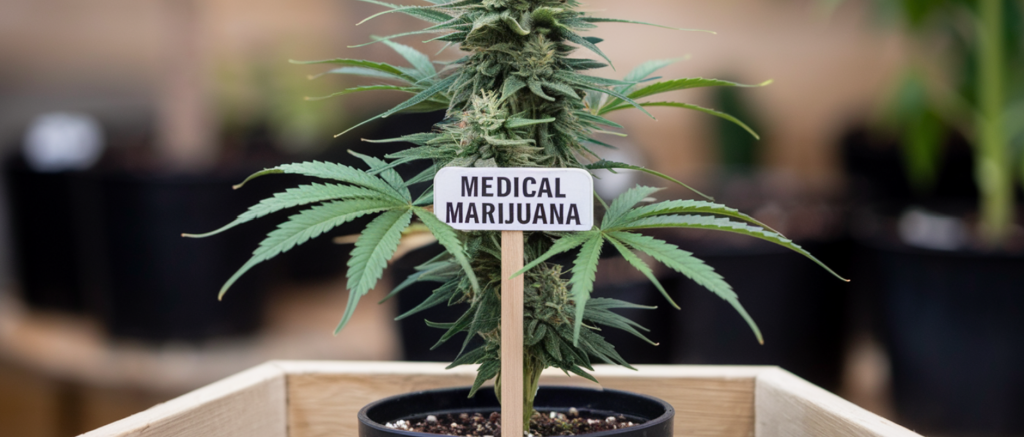Michigan’s Medical Marijuana Lawyers
It is essential to have an expert legal defense for felony and misdemeanor drug crimes in Michigan. The prosecution will be tough; you need an even tougher defense.

Drug Crimes Defense Attorneys in Michigan
There is a tremendous amount of advertising for marijuana (also termed “marihuana” in Michigan) or cannabis legal defense groups. These ads are funded by lawyers who claim to have expertise just because they are affiliated with a marijuana group. Just because a lawyer has an association with cannabis or medical marijuana groups does not mean that the lawyer has any specialized knowledge or experience. Such an affiliation only means that the lawyer has paid an advertising fee.
You cannot find lawyers who are more experienced or successful in defending marijuana and medical marijuana cases than the medical marijuana lawyers with LEWIS & DICKSTEIN, P.L.L.C. We have decades of experience defending these cases and have an unparalleled track record of achieving extraordinary results. Our clients do not get lost in the crowd. Our attorneys ensure we treat each client with the utmost care. Rest assured that our firm is well-versed in all laws related to any drug crime. Even though recreational marijuana is legal in Michigan, certain quantities and rules apply to qualified patients and caregivers under the MMMA.
Recreational and Medical Marijuana Lawyers
The Michigan Regulation and Taxation of Marihuana Act (MRTMA) legalized recreational marijuana in Michigan for individuals 21 years or older. MRTMA provides broad legal protection from arrest, prosecution, penalty, seizure or forfeiture of property, and search or inspection for a person who does the following concerning recreational marijuana in Michigan:
- Possessing, using, consuming, purchasing, transporting, or processing 2.5 ounces or less of marijuana, but you are not legally permitted to possess more than 15 grams of marijuana concentrate. It is lawful to possess more than 2.5 ounces of marijuana at your residence – up to 10 ounces – however, any excess marijuana over 2.5 ounces must be stored in a container or area equipped with locks or other functioning security devices restricting access to its location.
- Possessing, storing, and cultivating up to 12 marijuana plants for personal use at your residence.
- Giving away or otherwise transferring, without receiving payment, up to 2.5 ounces of marijuana, with 15 grams or less of such marijuana in the form of marijuana concentrate, to a person 21 years of age or older. The transfer may not be advertised or promoted to the public.
- Use, manufacture, possession, and purchase of marijuana accessories, including the distribution or sale of such accessories to a person 21 years of age or older.
Possession or use of marijuana by someone under 21 faces a possible civil infraction and a fine.
Michigan law requires that anyone using marijuana must do so in private, such as in their residence, hotel room, or private office. It is illegal to use marijuana in a public place, such as on the street, concert, sporting event, park, or restaurant. It is also unlawful to possess marijuana in areas frequented by children, such as schools and school buses.
Possession and use of marijuana are still illegal under federal law, so you should possess marijuana on federal land or in locations regulated by federal law. Airports, for example, are considered federal property and, as such, follow federal law. Therefore, it is illegal to possess or use marijuana in an airport, any other federal property, military bases, and federal prisons and detention centers.

Aggressive Legal Protection
Whether you are a medical user or caregiver, the legal system regarding marijuana is complicated. Law enforcement officials, prosecutors, and judges do not agree with many of the new laws. Therefore, they act as if these protections do not exist and entangle individuals in a legal battle. LEWIS & DICKSTEIN, P.L.L.C. is the experienced law firm needed if you are charged with drug-related crimes in Oakland, Macomb, Wayne, Livingston, Washtenaw Counties, or anywhere in Southeastern Michigan. Our experienced and battle-tested lawyers are not afraid to challenge a biased court system, a forceful prosecutor, or a persistent law enforcement agency to help you keep your freedom.
Michigan Medical Marihuana Act and the Regulatory System
The original Michigan Medical Marihuana Act (MMMA), MCL 333.26421 – 333.26430, was passed in 2008. The legal landscape of medical marijuana is constantly changing in Michigan, and your medical marijuana defense lawyer must be knowledgeable on any recent or proposed changes to the current law affecting medical marijuana in Michigan.
In 2016, the Michigan Legislature created a regulatory system for medical marijuana businesses and new protections for patients. This medical marihuana regulatory system’s construct is found in the Medical Marihuana Facilities Licensing Act (MMFLA), MCL 333.27101 – 333.27801, and the Marijuana Tracking Act (MTA), MCL 333.27901 – 333.27904.
The essence of the MMMA is that a “qualifying patient” may obtain a certification from a physician and a “registry identification card” from the State Department of Community Health, which will authorize the patient to avoid prosecution and other penalties for cultivating up to twelve (12) marihuana plants and a combined total of 2.5 ounces of raw medical marijuana and “usable marihuana equivalents.” One ounce of dried cannabis is equal to 16 ounces of marijuana-infused products if in a solid form, 7 grams of marijuana-infused products if in a gaseous form, or 36 fluid ounces of marijuana-infused products if in a liquid form. A qualified, experienced medical marijuana lawyer can help you understand the intricacies of the MMMA.
A “registered primary caregiver” can get authorization to cultivate and distribute marihuana to patients lawfully. They may legally possess up to twelve (12) marihuana plants per patient with whom the caregiver is formally associated. This authorization comes in the form of a registry identification card, which protects caregivers from arrest, prosecution, or penalty when acting according to the MMMA. Under the MMMA, a registered caregiver may cultivate marihuana for and sell to not more than five patients (i.e., not more than 60 plants). A caregiver who is also a patient may cultivate up to twelve (12) additional plants for personal consumption.
The regulatory changes in 2016 provided for the creation and reclassification of individuals and entities involved in the cultivation, transportation, and ultimate sale of medical marihuana. Each requires a “state operating license” to operate lawfully under the MMFLA. These include a “grower,” “processor,” “secure transporter,” provisioning center” (i.e., dispensary), and a “safety compliance facility.”

Defenses Available under the Medical Marijuana Laws
The MMMA outlines two defenses: Section 4 and Section 8. Courts regularly rule on new cases, further defining and clarifying how these defenses operate. A Section 4 Defense provides qualified registered patients broad immunity from “arrest, prosecution, or penalty in any manner” if certain foundational facts are accurate. Section 8 provides limited protection for the use of medical marijuana in criminal prosecutions, which requires dismissal of the charges if all the elements of the defense are proven; this is even for an unregistered patient. A defendant who moves for the dismissal of criminal charges under section 8 must raise the defense in a pretrial motion to dismiss and for an evidentiary hearing. The foundational requirements for both defenses require specialized knowledge and skill to establish. The medical marijuana lawyers with LEWIS & DICKSTEIN, P.L.L.C. have the skill, experience, and reputation for creating a viable and credible defense.
Defenses Available under the MMFLA
Like the MMMA, a registered qualifying patient or primary caregiver is also protected from criminal prosecution. These protections extend to purchasing marijuana from a provisioning center if the quantity purchased is within the limits outlined in the MMMA. A registered primary caregiver cannot be prosecuted or sanctioned for transferring 2.5 ounces or less of marihuana to a safety compliance facility for testing.
Additionally, if you are granted a specific state operating license under the MMFLA, and you are operating within the scope of that license, you are not subject to, among other things, state or local criminal prosecution for a marijuana-related offense. This same protection also applies to property owners/landlords leasing property upon which a marihuana facility is located. However, this protection is only granted if the property owner/landlord does not have knowledge that the licensee violated or is violating the MMFLA. If you are a property owner looking to lease or are currently leasing space to a facility operating under the MMFLA, it is important to consult with the experienced medical marihuana lawyers at LEWIS & DICKSTEIN, P.L.L.C. to ensure that you are afforded protection against prosecution for any potentially illegal actions taken by your tenant.
Operating Under the Influence of Medical Marijuana
The protections of the Michigan Medical Marihuana Act extend to a registered qualifying patient who internally possesses marihuana while operating a vehicle unless the patient is under the influence of marihuana. Officers must be able to articulate facts that support a finding of probable cause that a registered qualifying patient is under the influence of marihuana to arrest a registered qualifying patient for Operating Under the Influence of Marijuana. Our job is to know the laws and how they will work for you. We craft a strong defense for you, and that is our primary focus. We will provide strong guidance and strategy. Our medical marijuana defense lawyers will stand up for you and defend your rights. Throughout Michigan, judges and prosecutors recognize LEWIS & DICKSTEIN, P.L.L.C. as one of the most formidable firms battling the legal system.

Lawyers who are your best defense for any drug-related crime, including medical marijuana charges.
The law firm of LEWIS & DICKSTEIN, P.L.L.C. will stand up for you and defend your rights. Our experienced defense lawyers will do whatever is necessary to battle the legal system for you. We have an unparalleled track record of success defending clients on felony and misdemeanor drug charges in Michigan. Contact us for a free consultation with a criminal defense lawyer today!
Call us today at (248) 263-6800 for a free consultation or complete an online Request for Assistance Form. We will contact you promptly and find a way to help you.








